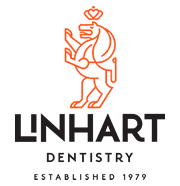That’s the sound Rice Krispies are supposed to make when milk is poured over the popular breakfast cereal. It’s NOT what’s supposed to happen when your mouth opens or closes.

Creaky, crackling and noisy joints are symptoms that might be predictive of problems that could, if not dealt with, result in limitations of jaw movement such as lock-jaw. Imagine not being able to open your mouth wide enough to eat a sandwich? Or, what about not being able to chew without pain?
Some people haven’t been able to eat a Subway sandwich without pounding it down, all their lives. They just think such limitation is normal. If you can’t get at least 3 finger widths between your teeth, you might have a TMJ issue.
The jaw joint or TMJ, temporomandibular joint, is unique in the body. It’s a double joint, with one bone, the lower jaw suspended via a joint at either end. Movement of the lower jaw position is controlled by these joints and by the muscles, tendons and ligaments that attach to the head, jaws and neck.
Most often, joint sounds are innocuous. Many people don’t know they have any. Your dentist should include an examination of your TMJ’s as part of a comprehensive examination.
Sometimes, joint sounds are problematic. They can be indicative of a misalignment in the joint, arthritis or inflammation. In a car, such a misalignment will cause the tires to wear out unevenly. The same thing happens in the mouth, as teeth can also wear out.
How does a misalignment of the jaws happen?
The usual reasons are; wear and tear, clenching/grinding, muscle imbalances, sleep position, sleep disturbances, trauma, poor posture, stress, mineral deficiencies/overload and even medications.
Medications? Every drug has some unintended consequence. Some of the more common ones that can affect muscles are:
➢ Diuretics (like Lasix and hydrochlorthiazide),
➢ Procardia (for angina and hepertension)
➢ Proventil, Ventolin, Brethine (for asthma)
➢ Statins like Lipitor and Crestor(for cholesterol)
➢ Evista (used for osteoporosis)
➢ Antidepressants (Paxil, Zoloft, Prozac, Celexa, Lexapro and other SSRI’s which can also be used to treat ADHD)
Millions of Americans take one or more of these medications. Yet, most people and even most doctors don’t associate the symptoms of muscle issues with these medications. The most common muscle complaints involve painful leg cramps, which might never be associated with medication use. But, such cramps and spasms can happen in any muscle.
Another common symptom of “TMJ” is fullness or even ringing in the ear (called tinnitus). These too can be signs of muscle issues. And to prove it to yourself, clench your teeth together tightly. When you do, does the background noise change a little? That’s because the muscles that close the jaw also have an affect on the ear.
Treatment of “TMJ” involves first making the proper diagnosis. Then appropriate recommendations for treatment can be made, which might include, self-care, medication modification, bite guards, physical therapy, orthodontics, bite adjustments and sleep appliances.
The takeaways here are:
- Pay attention to joint sounds or changes
- Bring such changes to your dentist or hygienist’s attention
- Tell your dentist and hygienist about all the medications you take
Your TMJ’s are too important to take for granted.
Article by:
Dr. Michael Goldberg and the Linhart Dentistry Team
